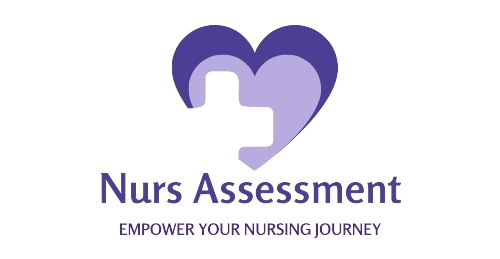Nursing care plans play a significant role in a patient’s recovery. That’s why the evaluation of the standardized care plan designed for nursing is an integral part of high-quality care delivered at the level of individual patients.
Furthermore, there are some of the ways through which the drawn-up plans for health care can be effectively evaluated. It includes proper determination of the systematic assessment of the patient’s outcome, coordination of better care, and improvement in satisfaction among patients.
There is no doubt that the importance of periodic evaluation and revision in the care plan lies at the root of patient-centered care delivery and constantly improving nursing practice. A review of a nursing care plan is to ensure that everything that is supposed to be functioning is indeed functioning. In this regard, nursing care plans can enable a nurse to assess how well a care plan is being effective or efficient for an individual patient.
Moreover, the evaluation of nursing care plans does not symbolize a checkbox; it symbolizes patient well-being and quality of healthcare. Let’s discuss why monitoring of progress is so critical and important. In this case, the nursing care plan evaluation examples can also help you.
Evaluation of Nursing Care Plan
Indeed, it is true that evaluation of nursing care plans enable nurses to find flaws and errors at an early stage. In this way, they can deliver better care to patients and help them to recover fast. No doubt, the evaluation of care plans as quality control in the nursing world. It helps the nurse to ensure that the patient receives continuous high-quality care from admission to discharge.
Elements of a Thorough Nursing Care Plan Evaluation
Nursing is a complex field and it requires a high level of knowledge and skills. Moreover, nurses must know how to develop effective care plans as well as their evaluations. A care plan evaluation is essential to provide efficient and effective patient care. There are few elements that are included in thorough nursing care plan evaluation. Let’s have a quick look.
- Assessment of Goal Attainment
This is just like checking a to-do list. Because looking at goal attainment allows the nurse to know whether he or she is on target toward the outcomes he or she wants patients to achieve. It is almost a progress report on the care plan.
- Review of Interventions & Outcomes
The care plan evaluation example will clear your concept that it is like cause and effect when one looks at the interventions placed and the consequent results. Through this, nurses are able to work out precisely what is working and what is not, and then decide on suitable strategies that can guarantee the best possible results for their patients.
- Methods & Tools for Assessing Nursing Care Plan Effectiveness
Nursing is a technical and scientific field. Therefore, there are a number of methods and tools that nurses use in evaluating nursing care plans.
- Quantitative Measures in Evaluation
Quantitative methods allow nurses to measure care plans with quantitative measures, running the numbers and looking at visible results. No doubt, the quantitative measures yield concrete and reliable results to evaluate standardized care plans.
- Qualitative Approaches to Evaluating the Care Plan
It is never all about the numbers sometimes. The qualitative approaches—the patient feedback and observational insights—put a human character in the review of a care plan. It is what looks beyond stats, understanding what real impact nursing care has on patients’ lives.
- Need for Patient-Centric Care
We can’t deny the fact that patient-centered care always comes first in healthcare. Moreover, the needs and preferences of the patient always gain priority within the nursing care plan. It basically comes down to treating patients like human beings and not like cases within the medical centers.
- Ways to Elicit & Integrate Patient Input
Just imagine when the doctor asks, “And how do you feel with your care plan?” This kind of open communication needs to be the way forward. The value of seeking feedback, listening, and reprogramming individual nursing care plans are perfect and ideal ways to enhance patient recovery.
Interdisciplinary Team Role in Nursing Care Plan Evaluation
These doctors, nurses, and therapists all work together on the same team to ensure the patient is taken care of. More effective care plans can be formed due to sharing information and collaborating with different experts. The care plan examples nursing can clearly show this aspect of the care plan.
Furthermore, sharing information, discussing strategies, and keeping everyone on the same page can enhance the efficacy of nursing care plans. All of them are working together, building trust, and adding more knowledge due to open communication.
Examples of Nursing Care Evaluation
- Case Study 1: Chronic Disease Management
This was the case of a patient who was able to get her diabetes under control through a properly conceptualized nursing care plan. Furthermore, the progress can be monitored through periodic review of such a plan on blood sugar level testing and checking medication adherence, hence making changes accordingly.
- Case Study 2: Palliative Care Planning
In this regard, the patient would have a holistic nursing care plan targeting comfort and symptom management. This is through constant assessment and further consultation with the patient and his family to make sure the plan conforms to the patient’s goals and preferences.
- Case Study 3: Health Management after Heart Attack
Mr. Dave, a patient aged 55 who has been hospitalized following a heart attack. In his history, he has hypertension and diabetes, though he enjoys spicy food. The care plan was monitoring his medication, management, dietary restrictions, and monitoring of the heart.
After the implementation of the care plan, Dave’s blood pressure and blood sugar levels were regularly monitored. Moreover, the changes were incorporated into his diet to accommodate his passionate love for spicy foods while still utilizing heart-healthy options. Through persistent follow-up, there was improvement in Dave’s condition, which served as an indication that the care plan was effective.
In this way, the nursing care plan evaluation examples can help you to understand the whole process of care plan evaluation. After consulting or reading such examples, your concepts become more clear.
FAQs
- Why is nursing care plan evaluation important?
Evaluation of the nursing care plan is important to monitor the progress, and confirming that the care plan is actually meeting the specific individual needs of the patient. This knowledge guides the health professionals to make effective decisions for the betterment of patient outcomes.
- How often is a nursing care plan evaluated?
The frequency at which a nursing care plan is evaluated, is always determined by the condition, care goals, and the setting of healthcare. Generally, care plans are usually reviewed at least on a weekly basis or whenever any remarkable change in the status of a patient occurs.
- To what extent are patients involved in evaluating nursing care plans?
Patient participation in the evaluation process is important because feedback and inputs from experiences form a substantial basis. Due to this nurses can ascertain the effectiveness of care interventions and the general experience of care. This increases patient-centered care through increased communication between patients and health care providers.

